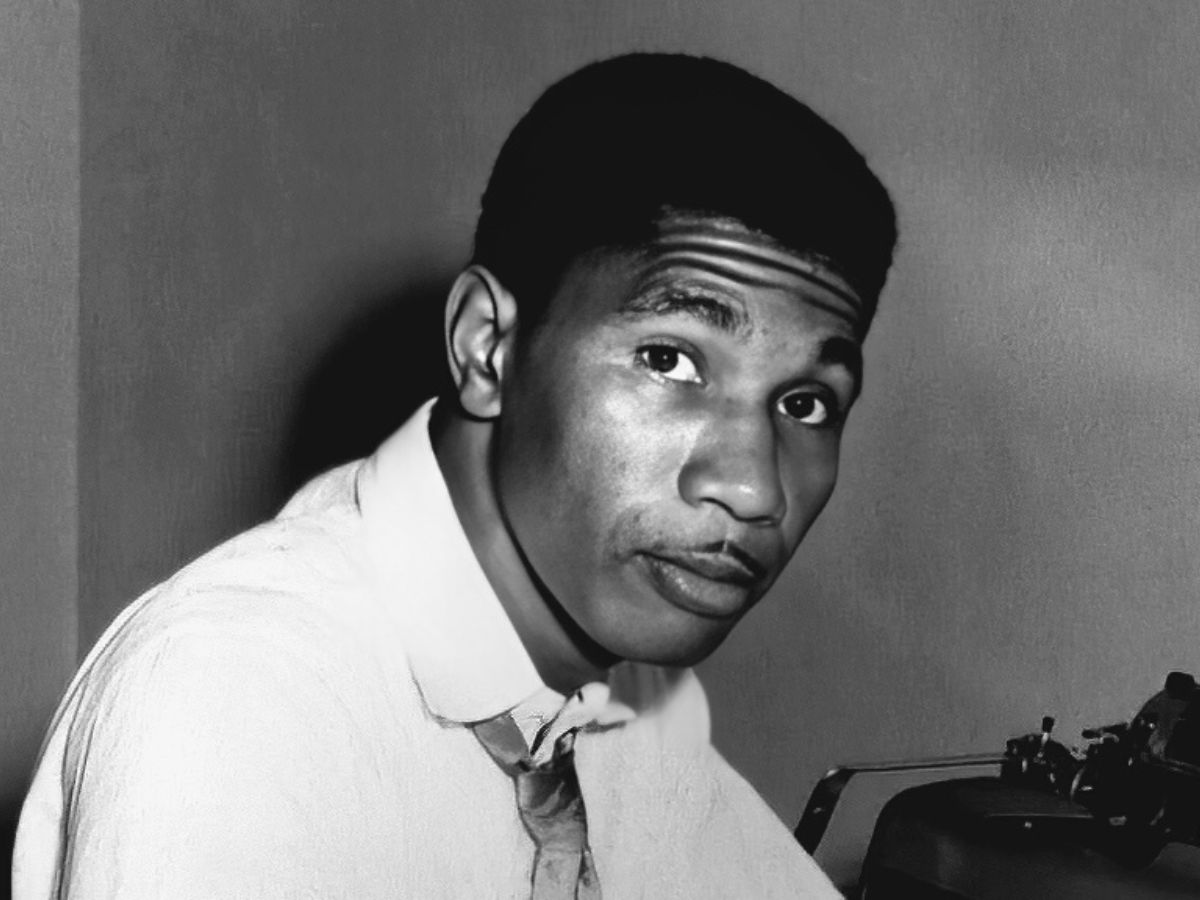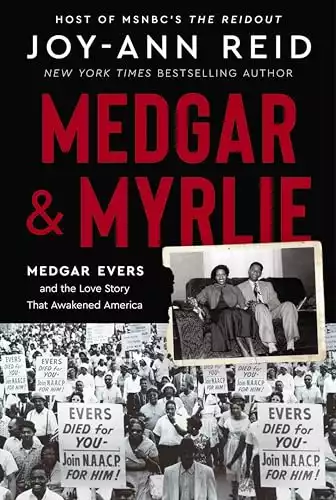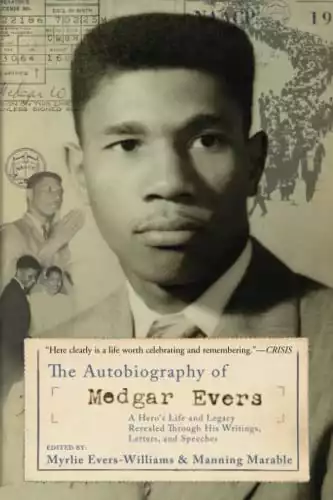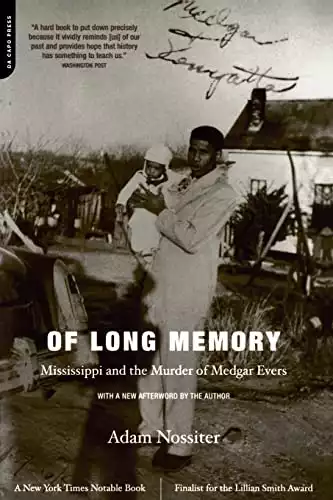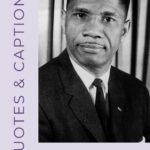
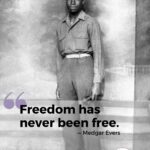

In February, during Black History Month, Americans of all backgrounds honor African Americans who have made a meaningful impact on our country. But just as school children learn American history throughout the year, these powerful Medgar Evers quotes can inspire you and encourage you to be a change agent for social justice year-round.
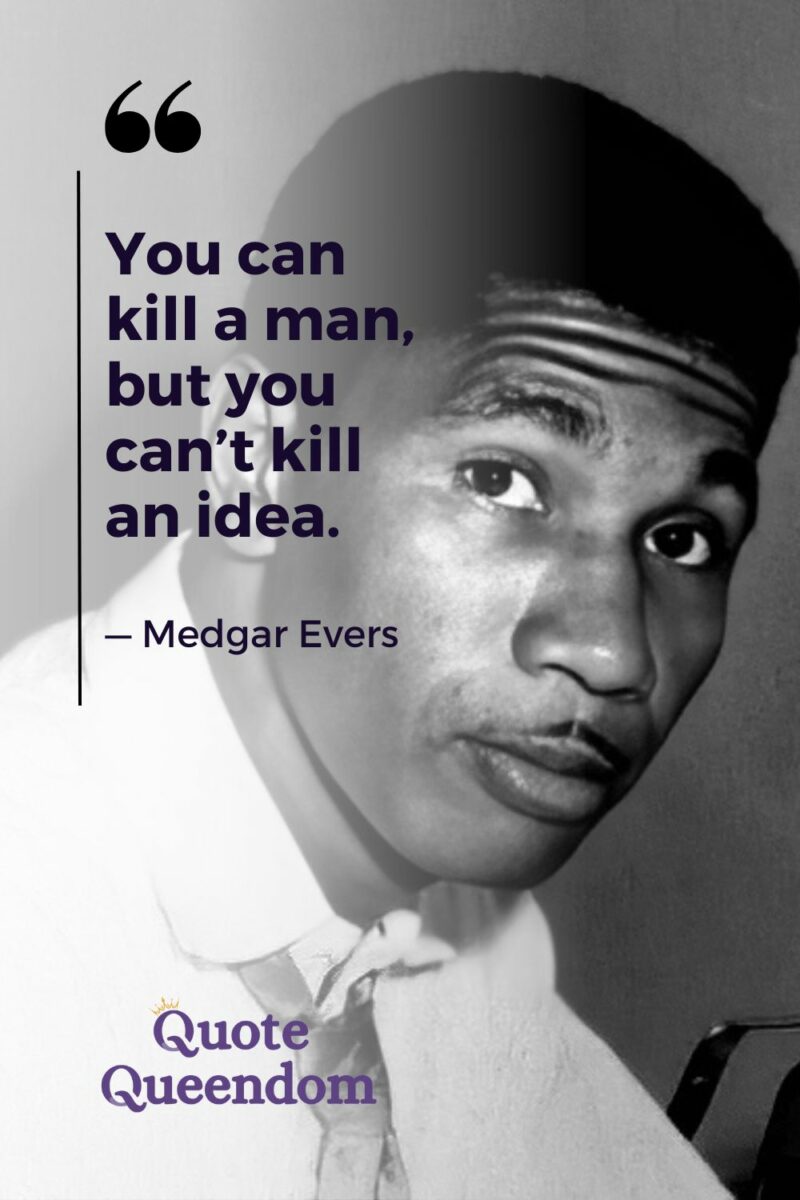
To help offset the costs of running QuoteQueendom.com, you’ll find affiliate links lightly sprinkled throughout the site. If you choose to make a purchase via one of these links, there’s no additional cost to you, but I’ll earn a teeny tiny commission. You can read all of the legal blah blah blah (as my little niece says) on the full disclosure page.
Table of Contents
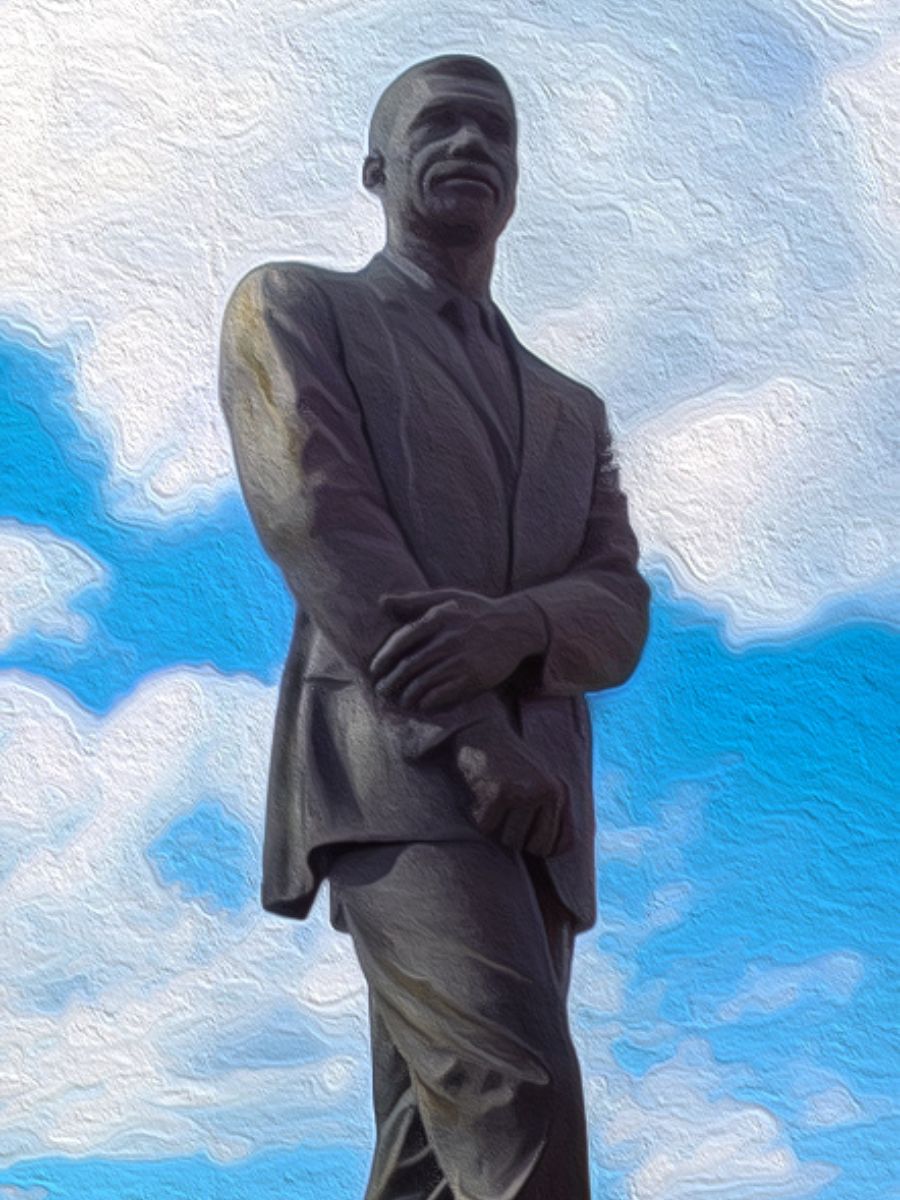
Who Was Medgar Evers?
Medgar Wiley Evers was an American civil rights leader who played a critical role in the Civil Rights Movement of the 1950s and 1960s. He was born in 1925 in Decatur, Mississippi, to a father who worked in a sawmill and a mother who was a laundress. Evers was the middle child of five siblings, forging a close relationship with his older brother, Charles Evers. Racial discrimination in a segregated Southern society shaped his childhood. But despite this adversity, Evers was determined to see Jim Crow laws overturned and used his education to fight for the rights of African Americans.
Evers enlisted with the United States Army during World War II. He served under a segregated port battalion and was part of the D-Day invasion in Normandy. After being honorably discharged as a sergeant, Evers returned to Mississippi and enrolled at Alcorn Agricultural and Mechanical College, a historically Black college now known as Alcorn State University. In addition to studying business administration, Evers competed on the debate, football, and track teams, sang in the choir, and was junior class president.
Shortly before graduation, Evers married fellow student, Myrlie Beasley. The couple had three children: Darrell, Reena, and James.
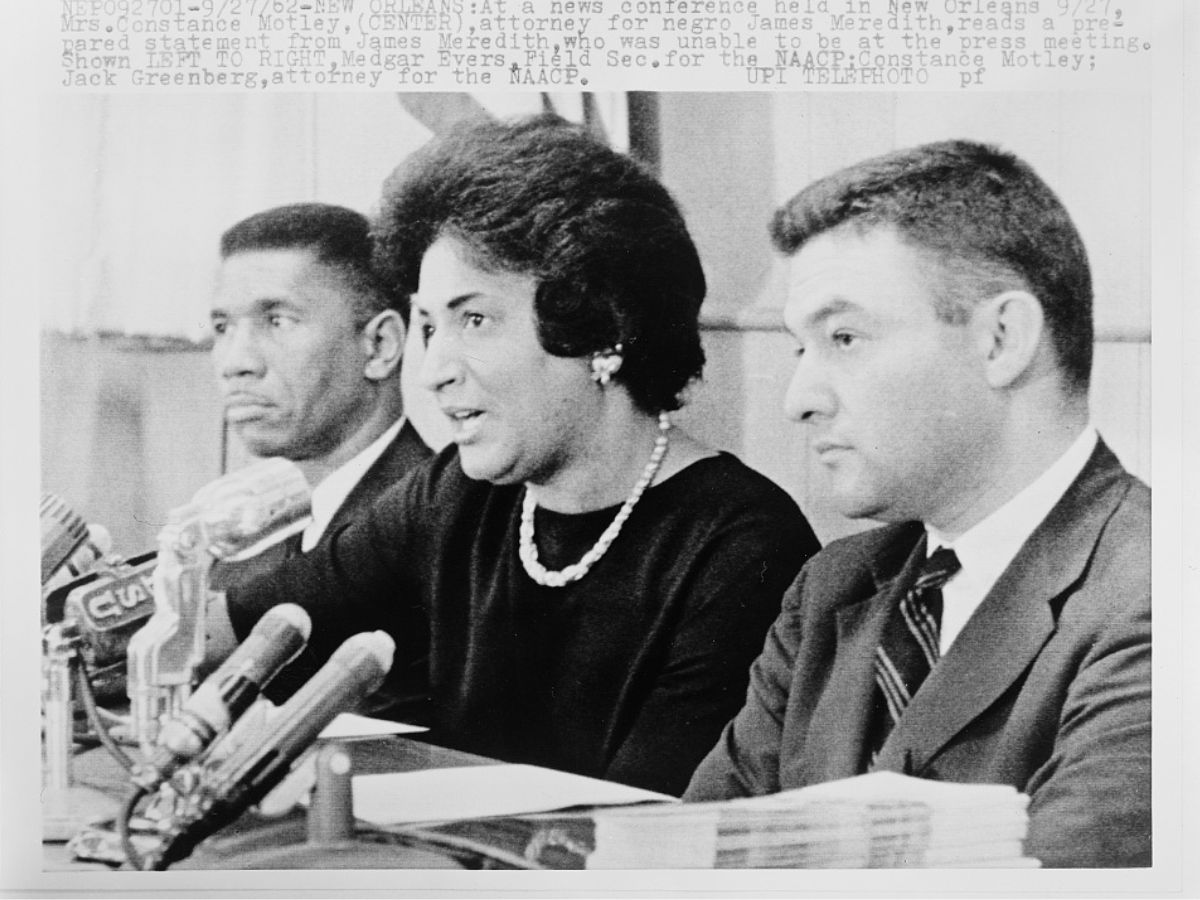
Evers's Involvement in the Civil Rights Movement
After initially finding work as a life insurance salesman, Evers soon became a civil rights organizer dedicated to fighting racial injustices. With the Regional Council of Negro Leadership (RCNL), he spearheaded a boycott against gas stations that refused to let Black people use their restrooms.
In February 1954, Evers applied to the University of Mississippi Law School. After being rejected, he volunteered to help the National Association for the Advancement of Colored People (NAACP) try to integrate the university with a lawsuit. Thurgood Marshall, who would eventually become the first Black person to serve as a Supreme Court Justice, was Evers’s attorney. While Evers failed to gain admission to the law school, he raised his profile with the NAACP, becoming the first field secretary for the NAACP in Mississippi later that year.
As a civil rights activist, Evers was targeted by those who opposed racial equality and desegregation. Because the Evers family received numerous threats, Medgar and Myrlie had trained their children on what to do in case of a shooting, bombing, or another type of violent attack on their lives.
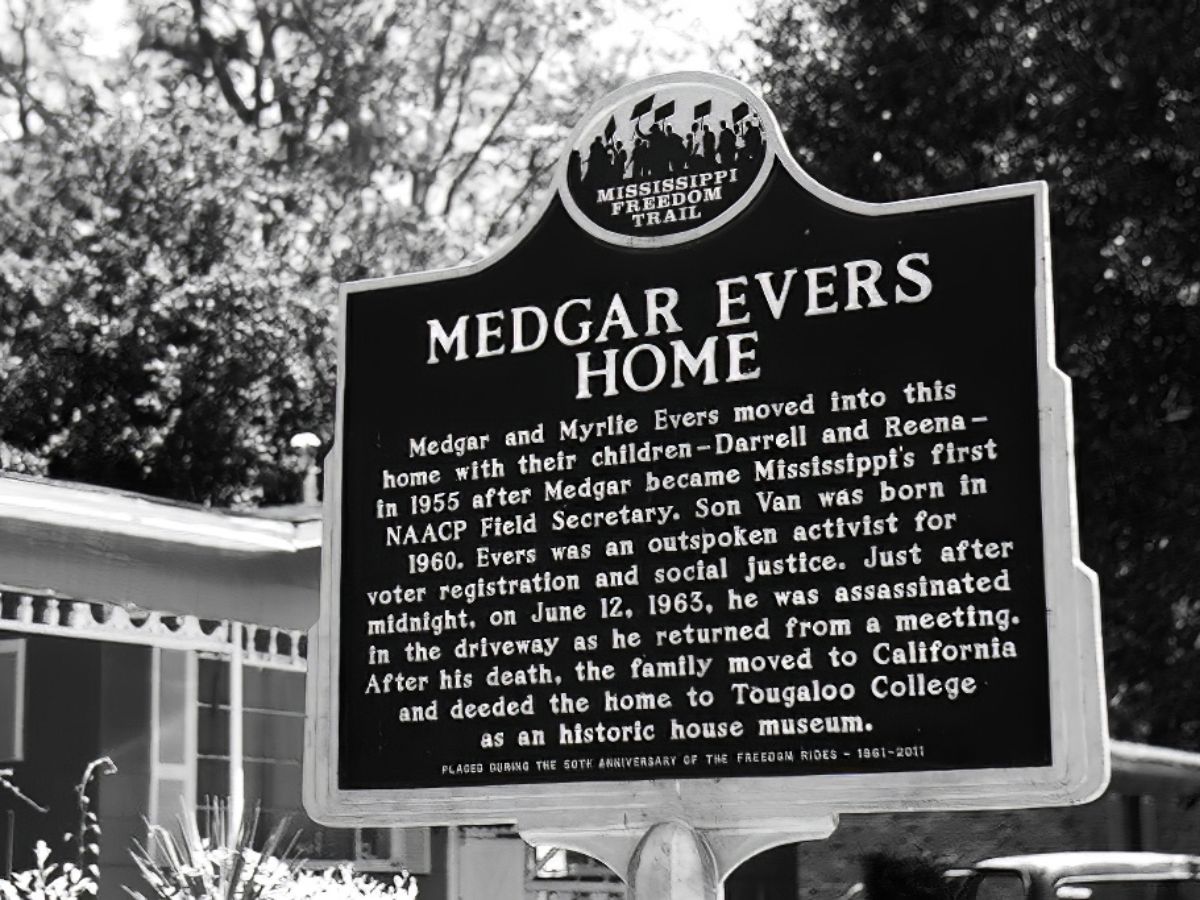
Who Killed Medgar Evers?
On June 12, 1963, just hours after President John F. Kennedy delivered his civil rights address, Medgar Evers pulled into his driveway. As he carried NAACP t-shirts printed with the slogan “Jim Crow Must Go” toward his home, where Myrlie and his three young children awaited his return, someone shot him in the back.
The local hospital initially denied Evers admittance due to his race after he was rushed there. Yes, you read that right. In 1963 Mississippi, a man seriously injured from a bullet wound could be denied care by a facility due to the amount of melanin in his skin. His family explained who he was, the hospital admitted Evers, but he died less than an hour later.
Just 37 years old, Evers was buried with full military honors at Arlington National Cemetery before a crowd of more than 3,000 mourners, and the NAACP posthumously awarded Evers the Spingarn Medal, an annual honor by the organization recognizing “the highest or noblest achievement by an American Negro.”
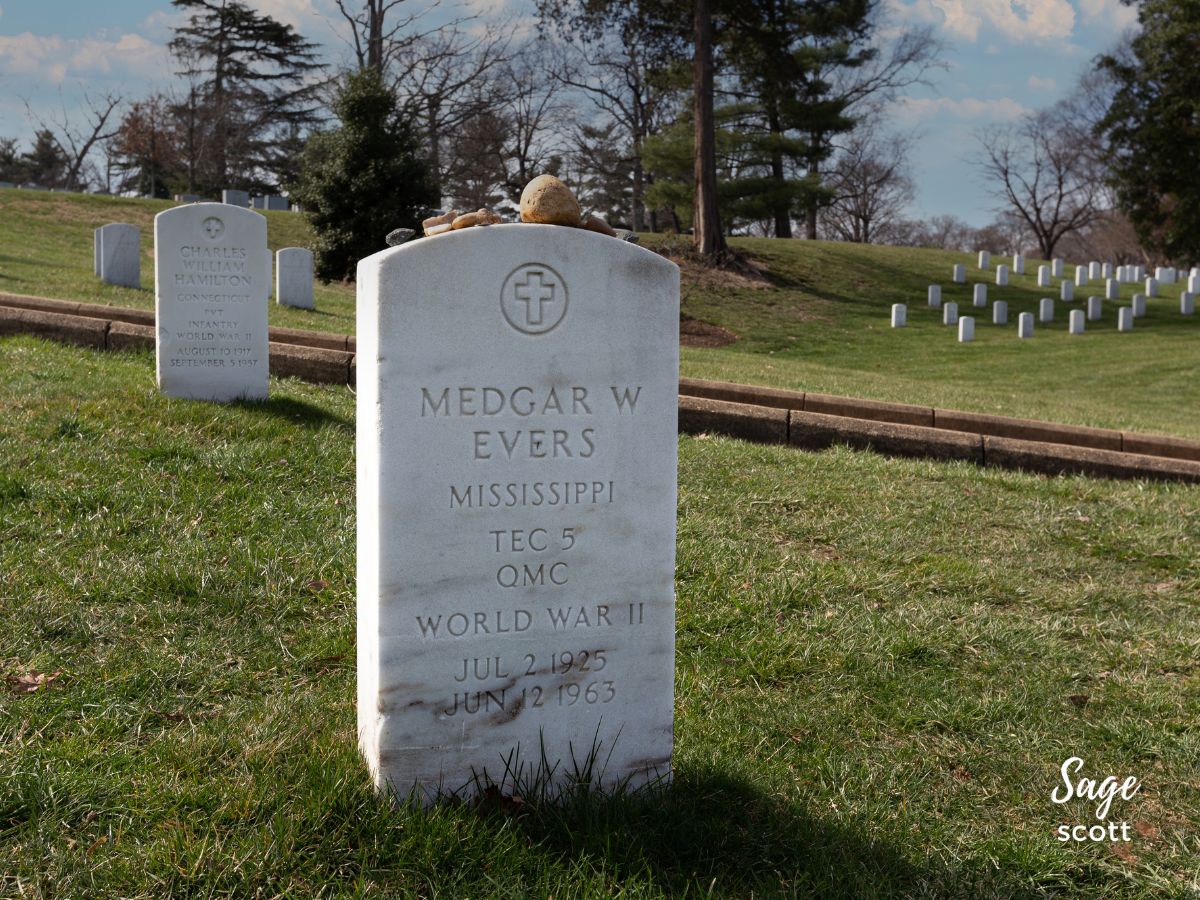
At the time of the shooting, police zeroed in on Byron De La Beckwith, a white supremacist, after finding a rifle registered to him, complete with his fingerprints on the scope, near the Evers home. Several witnesses also placed him in the area when Medgar was shot. Despite going to trial, Beckwith walked free when two all-white juries deadlocked on the verdict.
Throughout the country, Evers’s murder fueled a bitter conflict over segregation. Songs like Bob Dylan’s “Only a Pawn in Their Game” and Phil Ochs’s “Too Many Martyrs” were inspired by the justice system’s failure to convict Beckwith. And a national outrage over Evers’s murder increased support for the legislation that would ultimately become the Civil Rights Act of 1964.
More than two decades after Evers’s murder, new evidence against Beckwith was uncovered. In a new trial, he was found guilty of the murder of Medgar Evers and sentenced to life in prison. He died in 2001 at the age of 80.
Medgar Evers’s widow, Myrlie Evers, also became a prominent civil rights activist. She served as chairwoman of the NAACP from 1995 to 1998 and established the Medgar & Myrlie Evers Institute in Jackson, Mississippi.

Medgar Evers’ Legacy
You’ll find Evers honored from coast-to-coast from highways to airports and schools to ships. In 1970, Medgar Evers College was established as part of The City University of New York. Closer to home, a statue of Medgar was erected in Jackson, Mississippi in June 1992. The town has also renamed a stretch of US Highway 49 in his honor, and the city airport is now known as Jackson-Medgar Wiley Evers International Airport. And, in October 2009, the United States Navy named a dry cargo ship the USNS Medgar Evers in the activist’s honor.
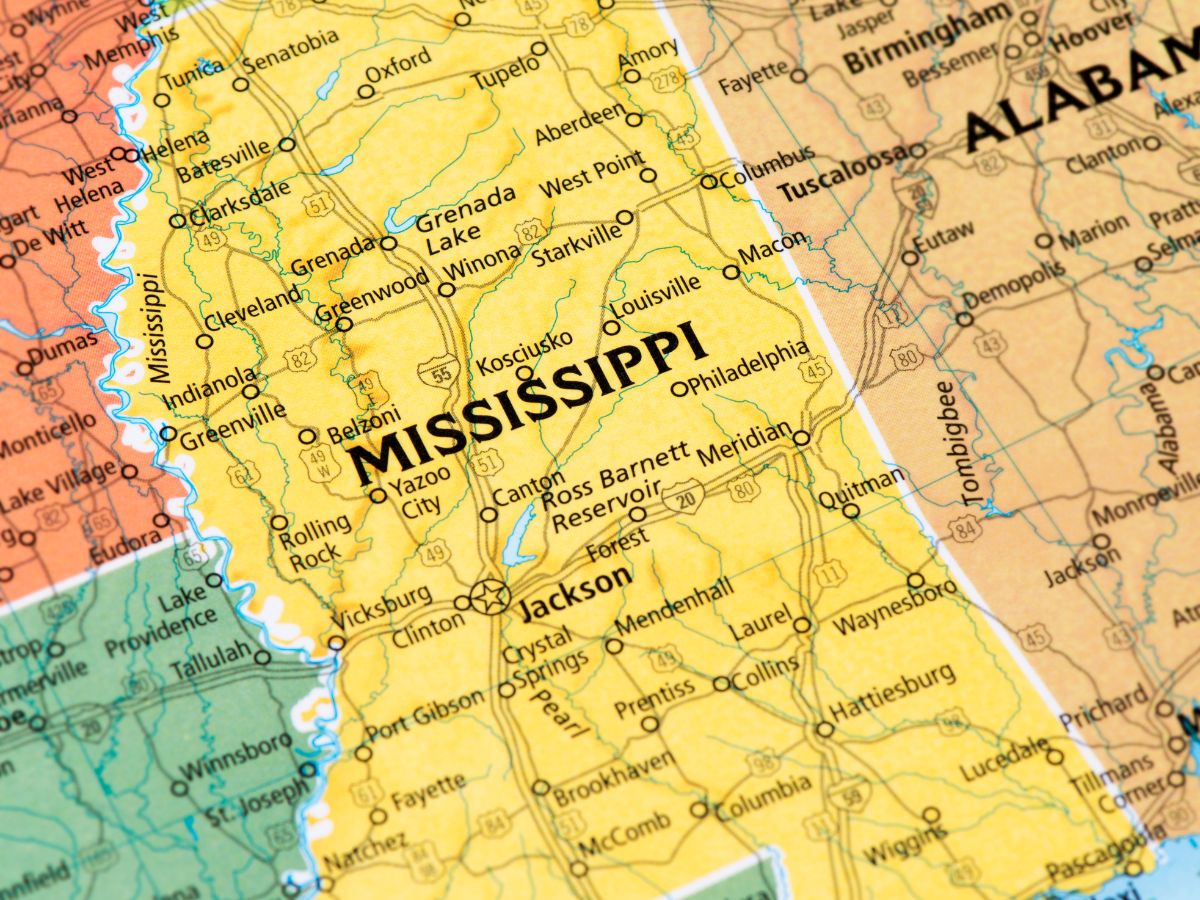
Medgar Evers Quotes About the South
“I was born in Decatur, was raised there, but I never in my life was permitted to vote there.”
— Medgar Evers
“I may be going to Heaven or Hell, but I’ll be going from Jackson.”
— Medgar Evers
“It may sound funny, but I love the South. I don’t choose to live anywhere else. There’s land here, where a man can raise cattle, and I’m going to do it someday. There are lakes where a man can sink a hook and fight the bass. There is room here for my children to play and grow, and become good citizens— if the white man will let them.”
— Medgar Evers
“The gifts of God should be enjoyed by all citizens in Mississippi.”
— Medgar Evers
“When a black Jacksonian looks about his home community, he sees a city of over 150,000, of which 40% is Negro, in which there is not a single Negro policeman or policewoman, school crossing guard, or fireman.”
— Medgar Evers
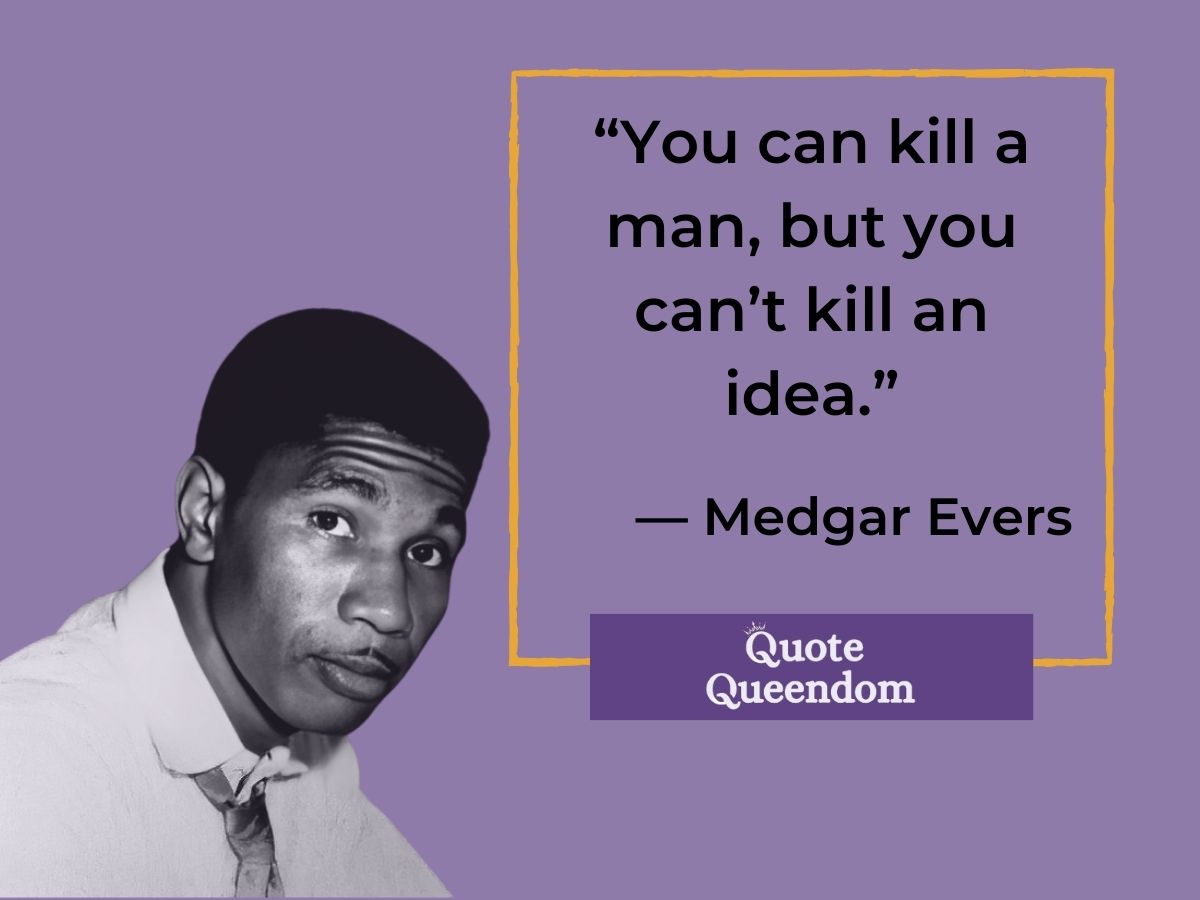
Civil Rights Quotes by Medgar Evers
“You can kill a man, but you can’t kill an idea.”
— Medgar Evers
“The Negro has been here in America since 1619, a total of 344 years. He is not going anywhere else; this country is his home. He wants to do his part to help make his city, state, and nation a better place for everyone, regardless of color and race.”
— Medgar Evers
“Our only hope is to control the vote.”
— Medgar Evers
“I’m looking to be shot any time I step out of my car… If I die, it will be in a good cause. I’ve been fighting for America just as much as the soldiers in Vietnam.”
— Medgar Evers
“As long as God gives me strength to work and try to make things real for my children, I’m going to work for it — even if it means making the ultimate sacrifice.”
— Medgar Evers
“Let me appeal to the consciences of many silent, responsible citizens of the white community who know that a victory for democracy in Jackson will be a victory for democracy everywhere.”
— Medgar Evers
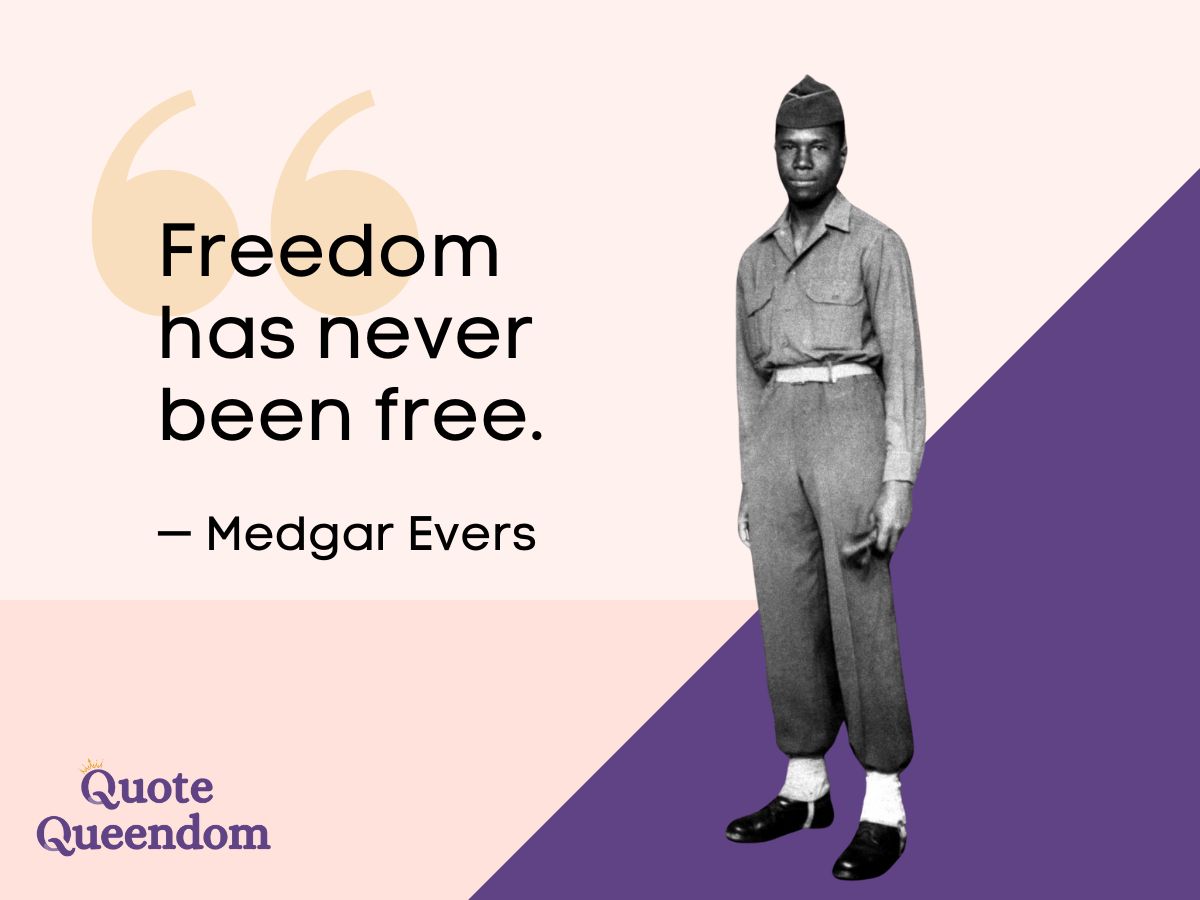
Other Powerful Medgar Evers Quotes
“Freedom has never been free.”
— Medgar Evers
“I love my children and I love my wife with all my heart. And I would die, die gladly, if that would make a better life for them.”
— Medgar Evers
“I plan to live on campus in a dormitory and to do all the things any other student of the law school might do: use the library, eat in the dining hall, attend classes.”
— Medgar Evers
“When you hate, the only person that suffers is you because most of the people you hate don’t know it and the rest don’t care.”
— Medgar Evers
“In the racial picture things will never be as they once were. History has reached a turning point, here and over the world.”
— Medgar Evers
“If you hurt someone then you are hurting other people, and you will feel guilty about what you did.”
— Medgar Evers
Which Medgar Evers Quote Do You Find Most Powerful?
What about the saying resonated with you? Is there a Medgar Evers quote missing from this list? Share your thoughts by leaving a comment below.
Thank you for sharing!

